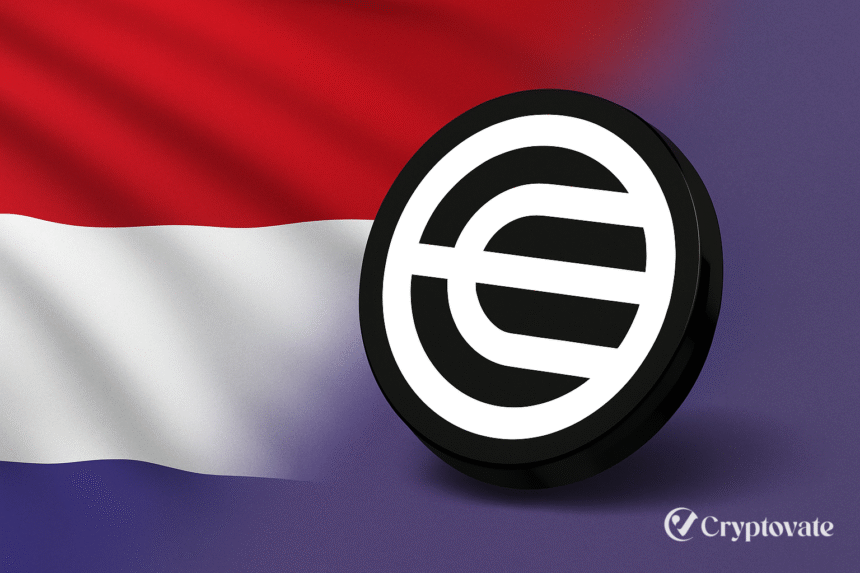– Ad –
| Getting your Trinity Audio player ready... |
Indonesia has taken a firm stand against Worldcoin and its WorldID services, suspending their operations due to significant data privacy and regulatory violations. The decision, announced by the Ministry of Communications and Digital Affairs (Komdigi) on May 4, 2025, highlights the country’s commitment to protecting user data and enforcing strict compliance with digital regulations. This move adds Indonesia to a growing list of nations scrutinizing Worldcoin’s controversial biometric data practices, raising questions about the project’s global expansion.
Why Was Worldcoin Suspended?
The suspension stems from two major violations uncovered during a preliminary investigation by Komdigi. First, PT Terang Bulan Abadi, the company operating Worldcoin in Indonesia, failed to register as an Electronic System Operator (PSE) and lacked the required Electronic System Organizer Registration Certificate (TDPSE). This certification is mandatory for legal digital operations in Indonesia, as outlined in Government Regulation No. 71 of 2019 and Ministerial Regulation No. 10 of 2021.
Second, Worldcoin was found using the TDPSE of another entity, PT Sandina Abadi Nusantara, which constitutes a serious breach of transparency and accountability regulations. According to Alexander Sabar, Director General of Digital Space Supervision, these violations prompted immediate action to prevent potential risks to the public. Komdigi intends to call in representatives from both firms to discuss these accusations and resolve compliance concerns.
Worldcoin’s Controversial Biometric Approach
Worldcoin, rebranded as World and co-founded by OpenAI CEO Sam Altman, aims to create a global digital identity system through its WorldID platform. The project uses an iris-scanning device called the Orb to generate unique biometric identifiers, rewarding users with Worldcoin tokens (WLD). While Worldcoin claims the data is encrypted and secure, its biometric collection methods have sparked global concerns, particularly in countries like Kenya and Spain, where similar regulatory actions have been taken.
In Indonesia, concerns raised by the public about questionable activities intensified the investigation. The lack of proper registration and misuse of another company’s certification raised red flags about data handling and user privacy. Indonesia’s 2022 Personal Data Protection (PDP) Law establishes strict guidelines for biometric data, which Worldcoin’s practices seem to violate.
Global Implications and Market Impact
Indonesia’s suspension is a wake-up call for cryptocurrency projects handling sensitive data. As blockchain and digital identity technologies grow, regulators worldwide are tightening oversight to ensure user trust and safety. The move aligns with actions in other countries, such as Germany, where authorities demanded Worldcoin delete biometric data to comply with GDPR regulations.
The suspension has also impacted Worldcoin’s market performance, with the WLD token price dropping 0.56% in the last 24 hours to $0.9477 as of May 5, 2025. This decline reflects investor caution amid ongoing regulatory challenges. For Indonesia, a key player in Southeast Asia’s crypto market, the decision could influence regional policies on biometric-based projects.
Also Read: Zodia Custody, ADGM Academy and ADGM Release Joint Paper on Future of Digital Asset Custody
What’s Next for Worldcoin?
Worldcoin must address Komdigi’s concerns to resume operations in Indonesia. This includes registering PT Terang Bulan Abadi as a PSE, securing a valid TDPSE, and ensuring transparent data practices. Failure to comply could lead to a permanent ban, further hindering Worldcoin’s expansion plans, including its recent U.S. rollout in six cities.
For users and investors, this suspension underscores the importance of prioritizing privacy and regulatory compliance in the crypto space. As Indonesia reinforces its digital ecosystem’s security, Worldcoin’s next steps will be critical in rebuilding trust and navigating the complex global regulatory landscape.

















